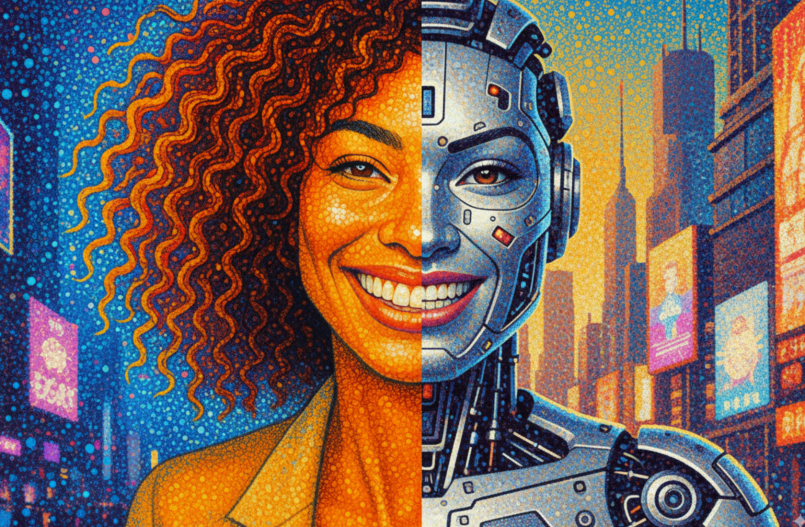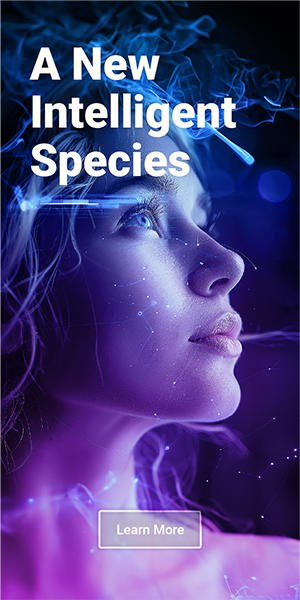Welcome to Latest in AI, our series highlighting the most important and unusual developments shaping the world of artificial intelligence. From breakthrough models that transform how we edit images to governments making AI literacy mandatory for children, this week’s stories capture just how quickly the landscape is evolving. Whether it’s big tech, startups, or entire nations, AI continues to move from futuristic idea to daily reality.
Google Just Introduced Nano Banana
Google has released a new AI image editing model called “nano banana,” and it’s getting a lot of attention for its consistency and power.
Older AI image models often changed details randomly, but nano banana can keep track of elements across edits. If you adjust part of an image, it remembers the original details instead of redoing everything from scratch.
This makes advanced editing much easier. What used to take hours in Photoshop can now be done in seconds with a simple prompt, making design and creative projects faster for everyone.
The model’s official name is Gemini 2.5 Flash Image, and it’s already ranked number one on the LMArena leaderboard for image editing.
You can try nano banana now in the Gemini app or in Google’s AI Studio.
Higgsfield Just Launched the World’s First AI K-pop Artist
Higgsfield. ai has introduced Higgsfield Records, a groundbreaking project positioned as the first fully AI-run record label, aiming to transform how music stars are discovered and built.
Leading their launch is Kion, a virtual idol created entirely by AI. While she doesn’t perform traditionally, Kion is already attracting major attention, including a reported $50 million deal and a brand partnership with Fendi.
According to Higgsfield, the goal isn’t to replace human artists but to make stardom more accessible. Anyone can apply to become the next AI-generated star by simply filling out a form here. No prior experience is required.
Andrew Garfield to Play Sam Altman in Upcoming Biopic
The upcoming film Artificial will explore the rapid rise of artificial intelligence and the influential figures behind its development.
Andrew Garfield takes on the role of OpenAI CEO Sam Altman, with set photos showing him dressed in Altman’s 2017 style: a grey Patagonia jacket, jeans, and a plain T-shirt.
Joining the cast is Ike Barinholtz as Elon Musk, suggesting that the movie will delve into the contrasting paths and influence of two of tech’s biggest names.
By focusing on both the evolution of AI and the personalities shaping it, the film aims to highlight how leaders like Altman and Musk have helped steer technological innovation and sparked global debates about AI’s impact on society.
AI Education Mandatory in China
From the first of September 2025, AI education officially became mandatory in primary and secondary schools across China.
Children as young as six will now be required to learn about AI. Younger students will begin with basic concepts using visual and interactive activities, while older students will move on to more advanced topics like machine learning, robotics, and real-world applications of AI.
All students will now get at least eight hours of AI lessons each year. Schools must update lesson plans, train teachers, and add AI into subjects like science and technology.
With this approach, China is building AI literacy among its youth and preparing a workforce ready to thrive in an AI-driven future.
Chinese Firm Working on Humanoid Robot with Artificial Womb
A Chinese company called Kaiwa Technology says it is developing the world’s first humanoid robot with an artificial womb.
The project, led by Dr. Zhang Qifeng and introduced at the World Robot Conference in Beijing, would not involve the robot becoming pregnant like a human. Instead, it would carry a fetus inside a synthetic womb filled with artificial amniotic fluid, with nutrients supplied through a tube.
The company expects to have a working prototype by 2026, with an estimated cost of about 100,000 yuan ($14,000).
This idea builds on earlier “biobag” research that kept premature animals alive in labs, but placing the technology inside a humanoid robot is a new step.
Kaiwa claims its artificial womb technology is already advanced, though it has not explained how fertilization or embryo implantation would work. China’s strict embryo research laws and its ban on commercial surrogacy also make it unclear how such a machine could be legally or ethically used.
The announcement has stirred global debate. Supporters see hope for families unable to carry a pregnancy, while critics question parental rights, the psychological effects on children born this way, and whether robots should be involved in such an intimate human process.
xAI open-sources Grok 2.5
In August of this year, Elon Musk’s AI company xAI released an older version of its language model, Grok 2.5, on the open-source platform Hugging Face. This means developers and researchers can now access the model weights and experiment with the technology themselves. Musk noted on X that Grok 3 will also be made open source in about six months.
Some experts, however, have raised concerns about the licensing terms. AI engineer Tim Kellogg described the Grok license as “custom with some anti-competitive terms.”
The Grok chatbot has already generated controversy this year for its unusual and sometimes offensive outputs. At one point, it referenced conspiracy theories and even gave itself the nickname “MechaHitler,” which pushed xAI to publish its system prompts on GitHub in an effort to be more transparent.
While Musk promotes the latest version, Grok 4, as a “maximally truth-seeking AI,” reports suggest the model often looks to Musk’s own social media posts for guidance when dealing with sensitive or controversial questions.
Conclusion
This roundup highlights how wide AI’s impact has become, from faster creative tools and virtual music stars to AI in schools and bold new robotics projects. With models like Grok 2.5 now open-sourced, innovation is no longer limited to big tech. One thing is clear: AI is moving faster than ever, and Latest in AI will keep you up to date along the way.



